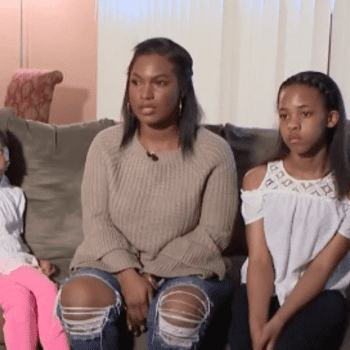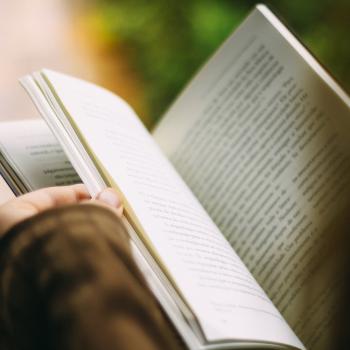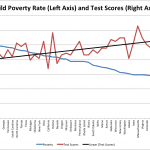
Forward Thinking is a values development project created in collaboration with Dan Fincke of Camels with Hammers. Dan is introducing our next prompt today (head on over to see it!), but in this post I will pull together some of the responses to this month’s prompt: “What is the purpose of public education?” In addition to reading these bloggers’ responses, if this topic interests you make sure to head over to the original post and read the discussion in the comments.
First we have some thoughts from The Ex-Preacher’s Kid:
I recently finished a book that has altered my perception about the purpose of education. E.D. Hirsch’s Cultural Literacy: What every American needs to knowbrought up some very interesting points, even if the book was published nearly three decades ago.
. . .
The purpose of public education should not be merely to crank out individuals with good test scores. Hirsch provides ample evidence and a persuasive argument that schools should provide students with a shared knowledge because life is a collection of interaction with other people, not just a series of individual achievements.
To the extent that there are themes common to these responses, the idea that the purpose of public education goes far, far beyond good test scores is definitely one of them. Eudaimonaic Laughter formulates a list of six purposes, going on to describe each in depth:
To talk about the purpose of public education is to imply that public education has only one purpose – and that is to oversimplify matters drastically. Major purposes of public education include in no particular order:
- Teaching basic skills
- Allowing people to reach their potential
- Social Mobility and Cohesion
- Relieving pressure on parents
- Base Economics
- Prevention of Child Abuse
Becoming Android echoes a number of these purposes, including helping people reach their potential, giving a helping hand to parents, and promoting a positive economic foundation, breaking things down into the interests of the child, the parent, and society:
If you don’t have an adequate education you will not be able to find a job, or at least not one that’s interesting and has any chance of going anywhere; so if you want to do interesting things at work, and have enough money to do interesting things with your free time, some kind of education is essential.
. . .
It is in a parent’s interest to educate their child; a parent should want the best for their child, and the best cannot be had without an education. If you want your children to decide what they want to do in life, and to achieve their potential, then spending some time teaching them what life has to offer, and developing their skills and knowledge, is fairly vital.
. . .
If you have any belief in equality of opportunity, a good, free, compulsory school system is the foundation stone of equality.
Becoming Android points to the importance of helping people achieve and promoting equality of opportunity, but also points directly to the economic goals behind public education—preparing people to find jobs. Lana of Wide Open Ground, though, finds this focus concerning:
I so often hear parents tell their kids, “you need to get an education” followed by “so you can grow up and get a job.” I find that ridiculous; we should teach kids to learn for the sake of learning.
. . .
We need to ask, “what should be the purpose of public education?”
From an economic standpoint, education is about preparing people for a job market. Its part of self-survival, but it’s also for the good of the people. People need jobs. Yet I do believe that public schools should first and foremost be about personal development and intellectual growth. It should be about a love of learning, and stimulating the brain through high arts. It should be about social growth, and extracurricular activities, including sports. And it should teach students to think (something America is lacking in).
. . .
In the end, I see the purpose of education as three-fold. First, echoing Arnold, it’s about the development of the human soul. Second, it’s about equalizing the rich and poor. And finally, it’s about creating a society of human beings able to think and build a healthy government.
Like Lana, Rachel Marcy of Ripening Reason emphasizes that public education should serve as an equalizer to help promote equality:
The social contract can’t function without a baseline of education. An educated society is a just and productive society. Public education, in theory, provides equal access for everyone. Of course, public education in the United States is actually very unequal. The quality of school districts vary substantially, mostly because wealthy districts have better-funded schools. However, I don’t look at the problems with our public schools and think the concept of public education has failed; I think the proper response is to reinvest and make the system better.
Public education has a twofold purpose: for the individual, it provides the foundation for a productive life; for society, it produces informed citizens. I want to live in a society where everyone has access to a good education, and can benefit from it, regardless of socioeconomic status. I want this because I think education is a human right, but also because I want to live in a republic with an educated populace, for the safeguard of order and liberty.
Editor B of Celebration of Gaia also appears to agree with Lana’s perspective, emphasizing the importance of teaching people to learn rather than just teaching them what to know. Once again, we see the idea that public education is about more than just test scores:
No one is born with the knowledge or wisdom needed for full participation in life on earth. Education is a process by which humans acquire learning and develop as individuals as well as members of a community.
William Butler Yeats said that education is “not the filling of a pail, but the lighting of a fire.” The pail symbolizes a pervasive view of education, which Yeats challenged, the notion that learners are empty vessels to be filled up with content matter. Fire symbolizes a transformative process whereby the learner is inspired to understand why learning is important, motivated and empowered to become a self-directed learner.
Yeats was mostly right, though perhaps he overstated his case. Education can legitimately claim both symbols. We still need the pail; there is a time for learning content, even for rote memorization. But the fire is clearly superior. Once the fire is ignited, the learner may well be able to fill her own pail.
Once again, if this topic interests you make sure to head over to the original post and read the discussion in the comment. I think the general consensus here is that public education should be about teaching content, teaching children how to learn, providing an equalizer that enables people to fulfill their potential, fulfilling the nation’s economic needs, and creating a common society bound by shared knowledge and shared experiences. Perhaps another interesting question for the future would be, if you could completely redesign the public education system, and had unlimited funds with which to do so, how would you redesign it?














